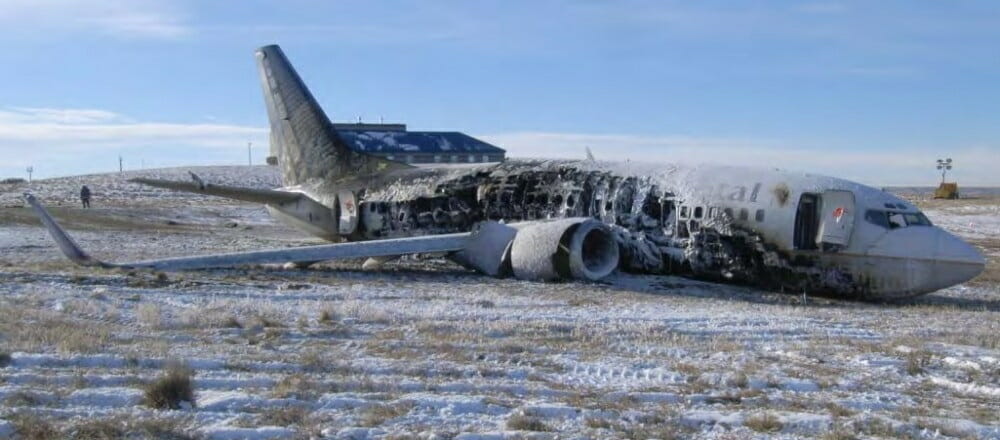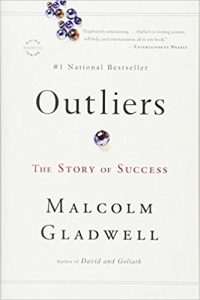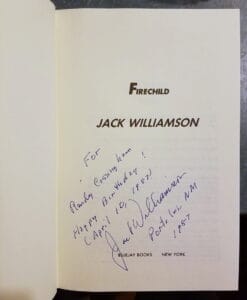You may have heard about the plane “crash” in Denver Saturday. A Continental jet taking off for Houston veered off the runway, went cross country for a bit, popped up over an airport service road, then collapsed on its belly and burst into flame. No one was killed.
The Absurdity Angle
One of those aboard was a cadet from the U.S. Air Force Academy in nearby Colorado Springs. He had planned to nap on the flight, but “We started bouncing, and I thought, ‘That usually doesn’t happen,'” he told the Denver Post. But it’s the next part that really caught my eye: “When the engine caught fire,” he said, “I knew something was wrong.”

Yes, well, remember, as an Air Force cadet he’s specially qualified to make such judgments. You, as a civilian, need to remember: just because your airplane’s engine bursts into flame doesn’t necessarily mean that something is wrong! (source article, if you’re interested.)

Speaking of plane crashes, I’m currently reading Malcolm Gladwell’s latest, Outliers, which I’m finding quite interesting. It delves into what makes people successful, and amazingly it has a lengthy chapter on plane crashes, and how culture affects crash rates. (And once that’s figured out, it’s actually fairly easy to fix!)
Intelligence ≠ Success
Society tends to think success simply goes to “smart people,” but smarts aren’t enough, as Stanford’s Lewis Terman figured out generations ago — much to his chagrin.
Terman, a pioneer of cognitive psychology, studied an early IQ test created by French psychologist Alfred Binet and modified it. Released in 1916, Terman’s “Stanford Revision of the Binet-Simon Scale” is now known as the Stanford-Binet IQ test.
One of Terman’s grad students was my grandfather, who was notable in that he was an Eidetic imager. Commonly called a “photographic memory,” my grandfather Carl Cassingham was able to look at a newspaper, turn off the lights, lie down, and then read it from the “image” in his mind.
Naturally, Terman relied on his grad students to refine and validate his version of the IQ test, so Carl would bring test questions home and try them on his young son — my father, Larry. No mental slouch himself, my dad got quite used to the specific questions, as well as the general types of questions that are common to various IQ tests.
Putting the Test to Use
During World War II, the U.S. military used these now very “refined” IQ tests to help figure out which soldiers were officer material, and which were …well… cannon fodder.
When my dad joined the Army Air Corps in World War II, he was given an IQ test, and predictably blew the psychologists away — his score was off the charts. In a very real way, his IQ couldn’t be measured by any conventional test because he had essentially memorized them all.
With the help of a sympathetic officer, my dad got the assignment he wanted: with his interest in science and the weather, he wanted to be a flight meteorologist. He was posted to Hobbs, New Mexico, which was a pilot training base, and made acquaintance with another meteorologist there by the name of Jack Williamson.
Grand Master
Williamson’s name might ring a bell for you. Before the war, he was well established as a writer, published in many of the early science fiction magazines. After the war, he grew into one of the grand masters of science fiction — only the second writer to receive that title from The Science Fiction Writers of America (after Robert Heinlein).

When Jack learned from my dad that I wanted to be a writer, he sent me an autographed copy of his latest book, Firechild (1986), to encourage my career.
When Jack died in 2006 at 98, I had the honor of writing his Honorary Unsubscribe — and the unfortunate duty to call my dad, who was starting his own decline, to tell him Jack had died. Dad had decades of memories to go through after that.
With my tidbits of inside knowledge it was fascinating to read a little bit about Terman’s work in Outliers, and see the answer to the question, “If intelligence isn’t the key to success, what is?”
So, why am I telling you this story now? Well, today is December 22: it would have been dad’s 90th birthday today. He died one year ago tomorrow, the day after he turned 89. And I had the honor of writing his Honorary Unsubscribe, too.
– – –
Bad link? Broken image? Other problem on this page? Use the Help button lower right, and thanks.
This page is an example of my style of “Thought-Provoking Entertainment”. This is True is an email newsletter that uses “weird news” as a vehicle to explore the human condition in an entertaining way. If that sounds good, click here to open a subscribe form.
To really support This is True, you’re invited to sign up for a subscription to the much-expanded “Premium” edition:
Q: Why would I want to pay more than the minimum rate?
A: To support the publication to help it thrive and stay online: this kind of support means less future need for price increases (and smaller increases when they do happen), which enables more people to upgrade. This option was requested by existing Premium subscribers.

My condolences on the loss of your dad, a year ago. I can tell you miss him. What a great seque from the plane crash in Denver to the book to your dad. I was in awe how you tied them all together. I reread it several times just to marvel at how it flowed. Probably the best I’ve read on This is True.
—
Thanks for your kind comments, Frank. -rc
I don’t know if I missed the date of your father’s birth last year in the HU – or if you didn’t mention it (unlikely) – or if I commented on it at the time.
My father, who died in 1979, was also born on December 22nd. Yesterday would have been his 97th birthday. I know you miss your dad – I still miss mine even after more than 29 years, and my mom after more than 14.
I still mark the birthdays of my family members who have gone on before. I can understand all too well how you feel.
I was greatly amused by your dad’s serendipitous Air Force testing. As a “quiz kid” myself, I can tell you that the key to success is FOCUS on your ambitions (which I never had and likely never will). I was about to be “drafted” in 1972 (had the physical and all) after thoroughly shirking my college studies (this after an ACT of 99.9?). After taking the Naval Air Reserve enlistment test, I was asked “What do you want to do? You’re qualified for anything we have…” – I passed up the Navy OCS offers after becoming an Air Traffic Controller. I never applied any of this, but did get another Federal job from which I retire in February. I will always wonder : if I could have focused a bit more on just ONE thing, any ONE thing, could I have gone to the top??? There might still be time now, but one can’t get “wasted” time back.
For an airline pilot’s critique of Malcom Gladwell’s ideas see http://www.salon.com/tech/col/smith/2008/12/05/askthepilot301/
Wow! I really admire photographic memory.
My IQ level is 140 (based on Einstein’s IQ test online) and still i don’t have this ability.
—
“Photographic” memory is not necessarily correlated with intelligence, and is very rare. And I wouldn’t rely too much on online intelligence tests. See, for instance, this page in this blog! -rc
My father was born Dec 22, 1911; this year would have been his 99th. Unfortunately he only made it to his 67th; he died Oct 1, 1979.